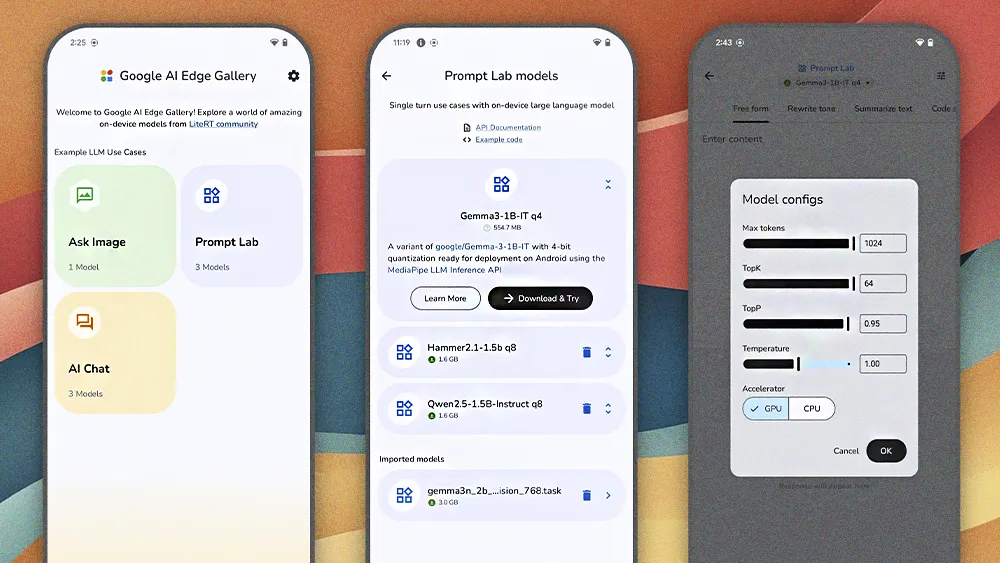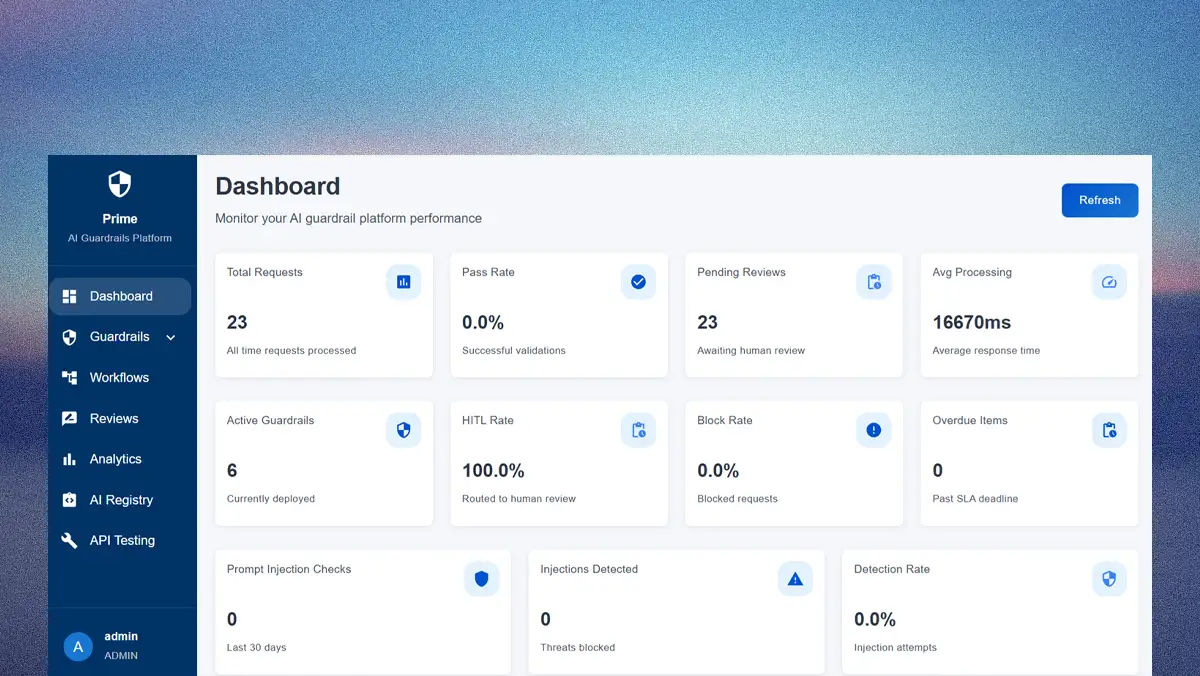Back to New Tab
Google exploring private, offline AI experiences with open source AI Edge Gallery release
AI
Google releases AI Edge Gallery, an experimental Android app for running generative AI models offline.

Google has released AI Edge Gallery, an experimental Android application available on GitHub, allowing users to download and run generative AI models directly on their devices, entirely offline.
Your phone, your AI: the new tool, which Google is calling an "experimental Alpha release", lets users and developers explore on-device AI. Tasks like image generation, code creation, and AI chats happen locally, which means data stays on the device, enhancing privacy, and the app works without an internet connection.
Gallery offerings: The app features "Ask Image" for querying pictures, "AI Chat" for conversation, and a "Prompt Lab" for single-turn tasks like text summarization and rewriting. AI Edge Gallery supports models from platforms like Hugging Face and Google’s own Gemma series, all powered by Google's LiteRT (Lite Runtime) engine for efficient on-device processing.
Free to tinker, mind the specs: Google invites developer feedback and has released AI Edge Gallery under an Apache 2.0 license, according to reporting from TechCrunch. But performance depends on device hardware, and AI model packages can be large—reportedly from 500MB to over 4GB—consuming storage and potentially slowing down less powerful phones. An iOS version is also anticipated in the near future.
Google's move puts more AI capability directly into users' hands, signaling a growing trend towards powerful, private, on-device processing, even if it means managing resource demands. Elsewhere on the edge, NVIDIA continues to build out its comprehensive platform for deploying AI from cloud to device, while its late 2024 partnership with OpenAI aims to boost AI model efficiency. Qualcomm is also a key player, focusing on low-power, on-device AI through its Snapdragon platforms, and numerous startups are innovating with custom chips and specialized software for real-time edge analytics.



